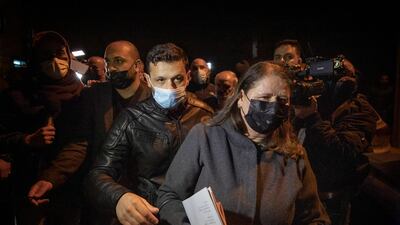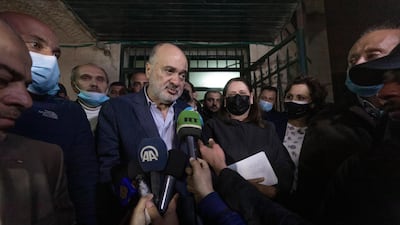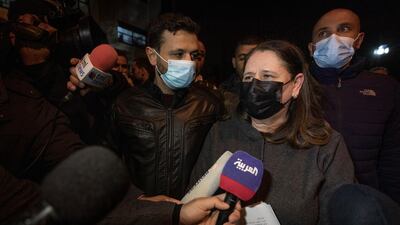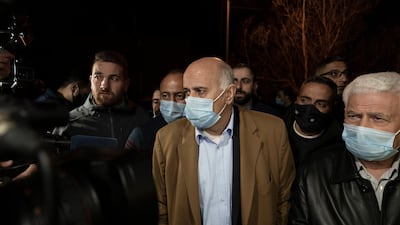Nasser Al Kidwa’s discontent with Palestine’s ruling Fatah faction was years in the making.
After five decades, he was expelled from Palestinian President Mahmoud Abbas's party and joined forces with one of Palestine's most prominent political figures, Marwan Al Barghouti, for legislative elections in May.
"And then came, of course, a campaign of intimidation, a campaign of threats [and] all kinds of media attacks [by Fatah]," Mr Al Kidwa told The National.
Mr Al Barghouti will run in presidential elections set to take place later this year, Mr Al Kidwa said, confirming reports that the jailed leader is not only backing the move against Fatah but will be directly challenging Mr Abbas.
A nephew of former Palestinian president Yasser Arafat, Mr Al Kidwa's aspirations for change face a slew of challenges after decades of unaddressed endemic issues, including "largely dysfunctional [government] institutions" and deep-seated public distrust in officials.
A poll of 1,200 adults by the Palestinian Centre for Policy and Survey Research found that 84 per cent believed the Palestinian Authority is corrupt.
Mr Al Kidwa agrees.
“It is the biggest internal issue affecting the people the most right now,” he said. “And Mahmoud Abbas is ultimately responsible.”
Mr Al Kidwa said his Freedom list wanted to change the status quo of poor governance, legal inequality and diminished freedom of expression in the occupied territories after 15 years of Fatah rule.
“It’s going to be sweaty. It might even be bloody. We have to be prepared for all difficulties that might face us. But the bottomline is this: we don’t have a choice. Things reached a point where we either go down the drain or we stand up and say: enough is enough.”
The fate any Palestinian politician found guilty of corruption would lie in the hands of the Palestinian parliament, which has been defunct for more than a decade but could play a more vital role in the political scene after the legislative elections.
"Of course there are people above the law" in the Fatah government, Mr Al Kidwa said.
The road ahead for the first Palestinian legislative elections in 15 years is also murky as the Palestinian Authority insists they will not be held if Israel refuses to allow voting in east Jerusalem.
Analysts believe this could be a way out of holding the elections for Mr Abbas, who is trailing in polls against the Barghouti-Kidwa alliance.
“With or without elections, things have already changed in the street," Mr Al Kidwa said.
"People broke the barrier of fear. For the first time in a long time, there is a discussion of political issues and new government."





